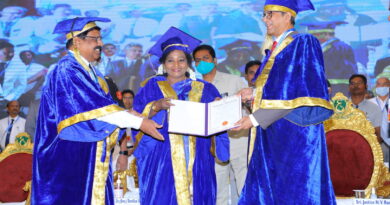Supreme Court Embraces AI for Translating Judicial Documents & Expediting Access to Justice
(Judicial Quest News Network)
The Supreme Court of India has pioneered the use of Artificial Intelligence (AI) in the translation of judicial documents, marking a significant step toward enhancing accessibility to legal proceedings. Since February 2023, AI has been deployed to transcribe oral arguments, particularly in Constitution Bench cases. Additionally, a dedicated Committee, led by a Supreme Court Judge, has been established to oversee the translation of key judgments into regional languages, with regular meetings held with High Court sub-committees to expedite the process.
As of now, 17 High Courts have begun publishing e-High Court Reports (e-HCR) and e-Indian Law Reports (e-ILR). These AI-powered committees are responsible for translating Supreme Court and High Court judgments into vernacular languages, ensuring that legal information reaches a broader audience.
The AI Committees have also urged state governments to translate all Central and State legislation, rules, and regulations into regional languages and make them accessible on state websites. This initiative is seen as a critical part of expanding “access to justice,” as outlined in the Constitution of India.
As of November 25, 2024, over 36,000 Supreme Court judgments have been translated into Hindi, while more than 42,000 judgments have been made available in 17 other regional languages through the e-SCR portal. Interestingly, this translation project has not received separate funding from the Supreme Court.
This initiative, detailed in a written reply by Shri Arjun Ram Meghwal, the Minister of State (Independent Charge) for the Ministry of Law and Justice, promises to significantly bridge the gap between the judiciary and the common man, ensuring that justice is not only delivered but also understood by all.


